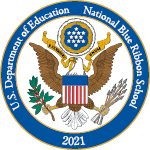What makes Challenger different?
What does it mean to be a National Blue Ribbon School?
What is Challenger's curriculum/course of study?
How do Challenger students rank against other private schools?
How can parents communicate with teachers and staff?
How do you ensure that Challenger teachers are effective?
What happens after Challenger? How does a Challenger education impact graduates' future successes?
I heard that Challenger is very structured—don’t children learn in different ways?
How does Challenger handle student behavior problems?
Do you offer help for students who are behind or who struggle academically?
Does Challenger follow Common Core or other state education mandates?
Do you offer child care before and after school for preschool and elementary students?
Is Challenger a charter school?
Why don’t you have school libraries?
Why do you teach Logo and Python?
